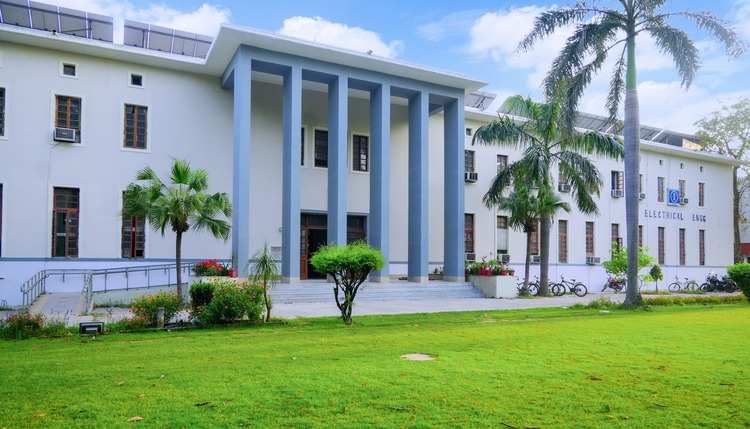
About Electrical Engineering Department
The Department of Electrical Engineering of the Thomson College in the year 1897, and was one of the earliest such specializations in the world when the discipline itself was in its infancy.
The first batch of Electrical Engineering students graduated in 1900 from the Thomason College of Engineering. For a few years, between 1923 and 1946, a special committee had recommended that the College may be converted into a purely Civil Engineering Institution, but another special committee favoured the reopening of the disciplines of Mechanical and Electrical Engineering. The present Department of Electrical Engineering came into being in 1946 and the first batch of electrical engineering graduates passed out of this college in 1949. Initially, the Department offered courses with options in both Electrical and Electronics & Telecommunications Engineering. Subsequently in 1964, the department was enlarged to have only Electrical Engineering, and a separate department of Electronics & Communication Engineering was created. Presently the Department conducts courses both at undergraduate and postgraduate levels and provides excellent facilities to carry out research work for Ph. D. degree and sponsored/ consultancy projects.
The Department has specialization in research areas such as: ANN and fuzzy logic applications in robotics and control, Distribution system planning and operation, Economic dispatch and planning, Flexible AC transmission system, Optimal system operation, Power system protection, monitoring, control and simulation, Power quality, Relay coordination, Power system automation, Artificial intelligence applications and Voltage stability of power system, Telemedicine, ECG signal analysis and classification, Digital signal and image processing, Intelligent instrumentation, Industrial instrumentation, Medical system modeling, Instrumentation and bio-informatics, Process instrumentation and control, System analysis and optimization, Data base management, FPGA based control, System automation and monitoring, Reliability engineering, Robotics, System modeling, Computer controlled system including process control, Computer controlled multi-quadrant solid-state converters, Condition monitoring of electrical machines/drives, High performance computer controlled DC and AC drives, Modeling and simulation of electric machines.



